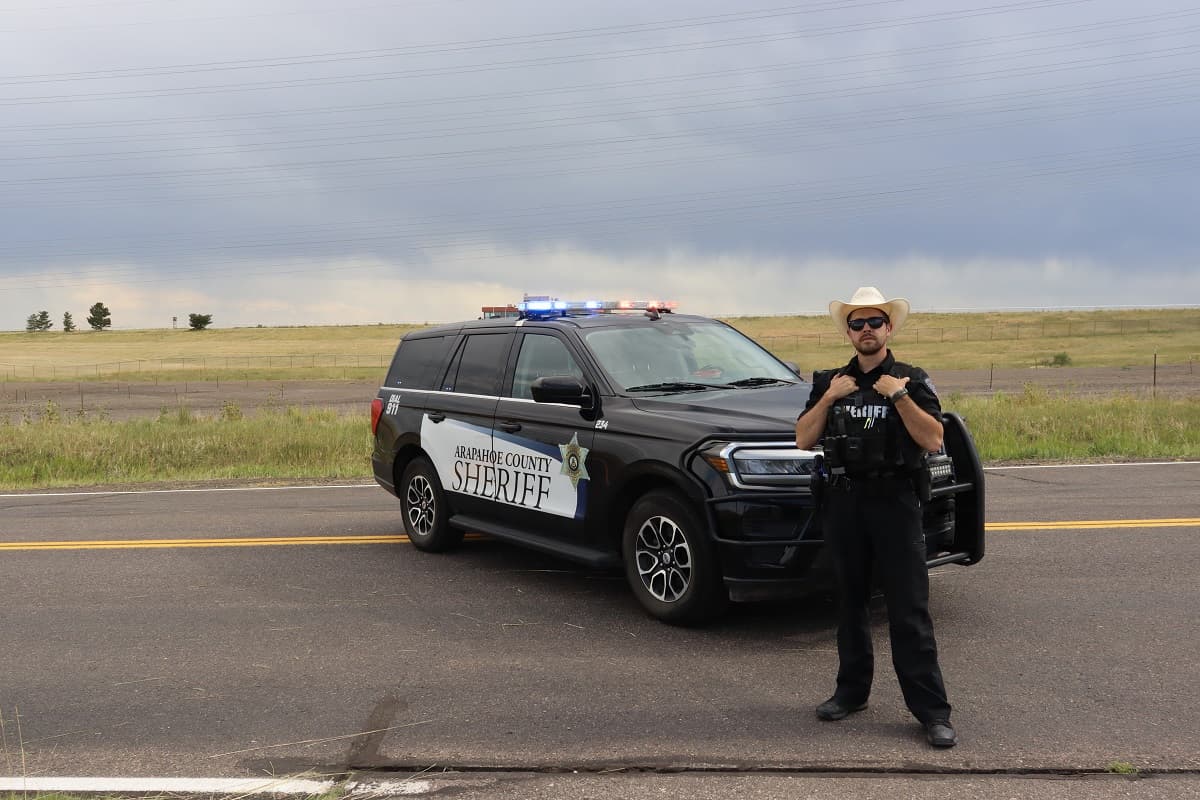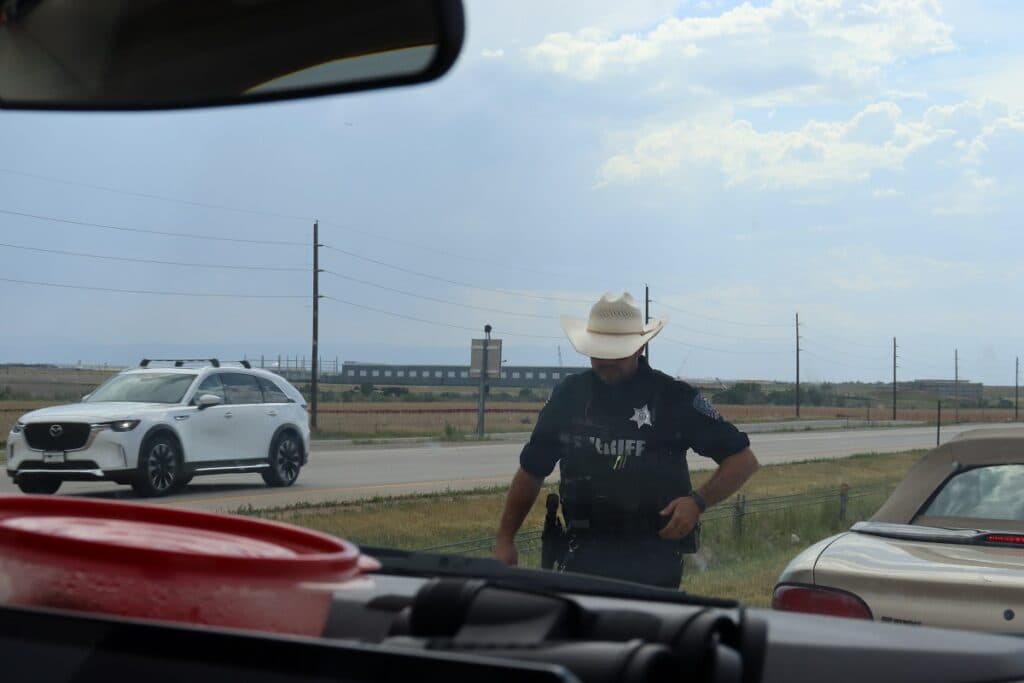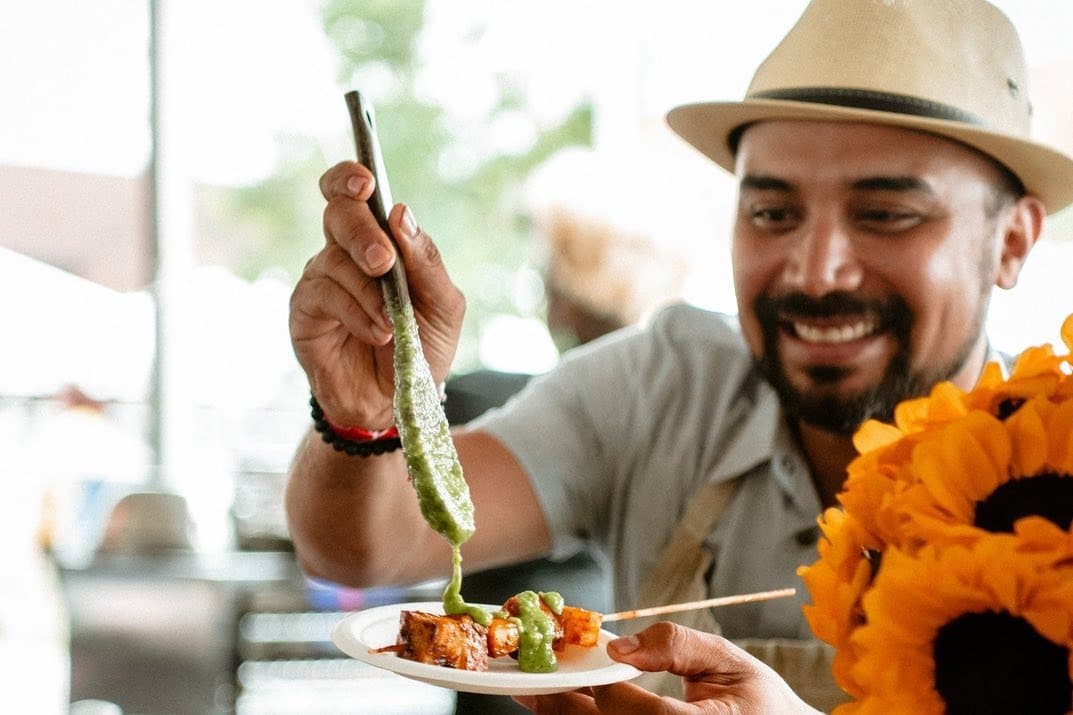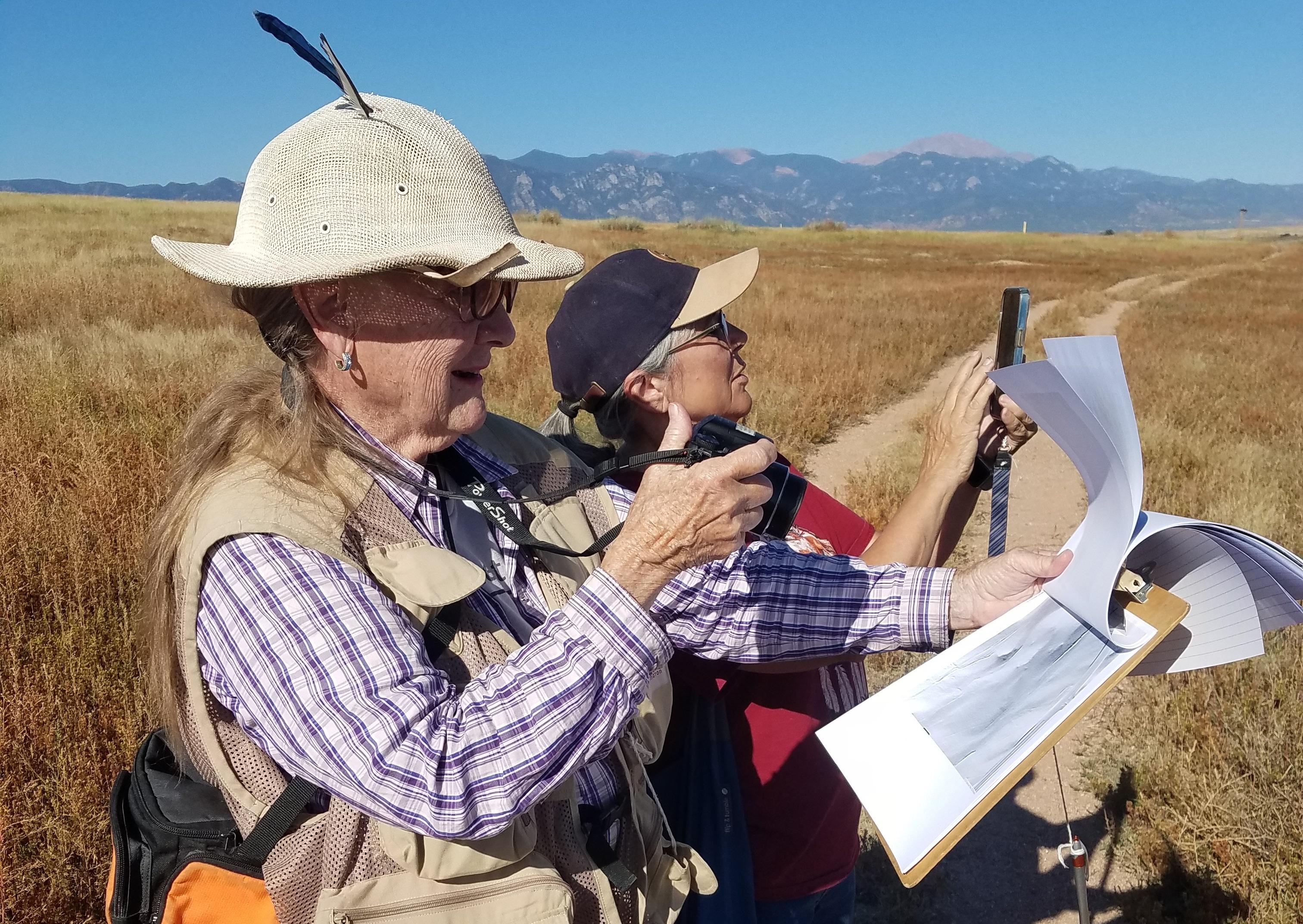
On a long stretch of highway in Arapahoe County, a sheriff’s patrol vehicle cruises past rows of farmland. Behind the wheel sits a deputy, a straw cowboy hat on his center console, eyes on the open road.
A new rule change in Arapahoe County means sheriff’s deputies are now allowed to wear cowboy hats while on duty — a small policy shift, but one that’s turning heads.
Deputy Devon Lance was one of the first to make the switch — not for fashion, but for meaning.
“People have this evocation of the Old West — a rancher, a cowboy — someone who had to work their way up through life. Didn’t have things handed to them,” Deputy Devon Lance said. “And I think people look at the cowboy hat and go, ‘He gets it.’”
Lance grew up in rural California and later served in the U.S. Army as a combat medic. Now, he patrols the far eastern edge of Arapahoe County — a sprawling rural district that includes the town of Bennett. It’s a place where tractors outnumber Teslas. “We’re way out east… a lot of farms, a lot of real big open space,” he says. “The people out here are great — most everyone’s real respectful, real nice.”
He believes being seen — and seen as approachable — matters. “You start to recognize and see the same people,” Lance says. “Especially if you stay in the same districts for a long period of time.”
Along with protecting people, he believes building a connection with the community is part of his responsibility. That chance to reshape the image of law enforcement is exactly why he became a deputy.
“I saw some of the bad things that law enforcement has done, and I thought to myself, 'Well, the only way to change something is to go out and get involved with it,'” he said. “So I’m gonna do it. I’m gonna be the change that I want to see.”
That change is tested during every on-duty call.
Minor violations, like a routine stop for expired plates, for example, can lead to higher-impact arrests, including drug charges. Deputy Lance recently made an arrest for methamphetamine possession after stopping a suspicious vehicle. “That’s what I love about the job,” he says. “It’s like a puzzle. Sure, it’s a minor traffic violation, but by looking and asking questions and digging a little deeper, I was able to take drugs off the street.”
But another routine stop for a similar violation wasn’t as clear-cut.
This time, the driver with expired plates was a 21-year-old delivering for Uber Eats. He was sweating, hands shaking. The system showed previous tickets for the same violation. But there were no warrants out for his arrest, and a quick look in his back seat revealed nothing out of the ordinary. When Lance came back to the squad car, he let out a long sigh and explained the situation.
“He called his daddy and was talking to him,” Lance said. “He and his family don’t have a house. They’re homeless. So, this young man's out here doing the best that he can, trying to earn some money for his family.”
Next came a string of questions Lance often finds himself asking, “Can I let this guy go and feel confident that he’s learned his lesson? Am I just ticketing somebody for their socioeconomic situation? Could this be the ticket that sends this kid over the edge?”
And is this person telling the truth?
“I get sob stories all the time,” he said.
This time, Lance felt the driver was just down on his luck.
“There just ain’t no sense in giving him a ticket,” Lance says. “It’s just pile it on, pile it on, pile it on. Why? I don’t think he’s lying. I think that kid is trying to help his family and doing everything that he can.”

It’s not always easy to make those calls. But for Lance, that’s the job. “The way I draw empathy is I try to always look at myself and ask: Am I being the man that my mom and dad wanted me to be? The man that my wife married? The man my son thinks I am as his dad?”
The cowboy hat, he says, is part of that. Not just a nod to Colorado’s Western heritage, but a reminder of who he is and who he’s trying to be.
“I was in the Army, so I’ve lived all over the U.S., all over the South,” he says. “Everywhere you go, you can find someone with that shared culture of respect — people trying to do the best they can do.
“There’s a country song that talks about that.”









